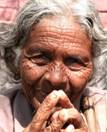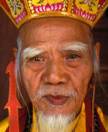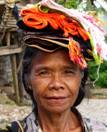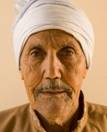|

|
|
United Nations
Open-Ended Working Group on Ageing
On November 19, 2010 after
more than three weeks of
intense negotiations, the UN adopted its Third
Committee's resolution to create an Open-Ended Working
Group on Ageing (OEWG) to consider the feasibility
a moving ahead toward a human rights instrument on
aging. The OEWG on Ageing held its first organizational
meeting in February 2011. Two working sessions will be
take place at the UN headquarters in April and August
2011. For more information about the OEWG on Ageing, its
programs and NGO participation please click here.
Background
Documents
UN: Open Ended Working
Group on Ageing (Aug 1-4, 2011)
This report summarizes the international framework on
the human rights of older persons. It lookslike
data disaggregated by age and sex are critical for
monitoring the implementation of the Madrid Plan of
Action. Further, deaths worldwide will become
increasingly concentrated at older ages; absent or
incomplete death registration data are a major gap in
knowledge of levels and trends of mortality among the
older population.
UN: Human
Rights of Older Persons: International Human Rights
Principles and Standards (April 18-21, 2011)
At present, older persons face
challenges in public transportation, housing and
access to information. Various forms of violence,
discrimination and lack of opportunities deteriorate
the situation for older people. Read this paper that
summarizes the existing international human rights
norms while addressing important human rights issues
regarding older populations around the globe.
UN: OEWG:
Human Rights of Older Persons (April 6, 2011)
OHCHR and UNDESA jointly prepared this report for the
Open Ended Working Group on Ageing’s first working
session. The document includes references from core
international human rights treaties and MIPAA (Madrid
International Plan of Action on Ageing) as well as
general recommendations from international human
rights treaty bodies.
UN: Latin America and the
Caribbean: Ageing and the Protection of Human
Rights: Current Situation and Outlook (March 2011)
In 2008, the Economic Commission for Latin America and
the Caribbean (ECLAC) adopted a resolution to mobilize
governments to establish an international convention
for older persons. In this report, ECLAC presents its
arguments in favor of an international convention and
also the elements that it thinks must be included in
the possible convention.
UN: Resolution
to Establish an Open Ended Working Group on Ageing
(November 19, 2010)
After more than three weeks of
intense negotiations, the UN adopted its Third
Committee's resolution to create an Open-Ended
Working Group on Ageing (OEWG) to consider the
feasibility a moving ahead toward a human rights
instrument on aging.
Second Working Session
(1-4 August, 2011)
Experts who will speak
during the Working Session range from UN Body
representatives to NGO’s. The Panelists also reflect a
geographic distribution throughout the world.
Daily
Summaries
Open
Ended Working Group on Ageing August Session
Summary - Day 1 (August 1, 2011)
Bethany
Brown, Policy and Advocacy Fellow, HelpAge USA,
submitted this first summary.
Open
Ended Working Group on Ageing August Session
Summary - Day 2 (August 2, 2011)
Bethany
Brown, Policy and Advocacy Fellow, HelpAge USA,
submitted this summary.
Open
Ended Working Group on Ageing August Session
Summary - Day 3 (August 3, 2011)
Bethany
Brown, Policy and Advocacy Fellow, HelpAge USA, and
Seriana van der Berg, visiting scholar at AARP
International Affairs, submitted this summary.
Open
Ended Working Group on Ageing August Session
Summary - Day 4 (August 4, 2011)
Bethany
Brown, Policy and Advocacy Fellow, HelpAge USA,
submitted this summary.
Member State Statements
Please visit the
official OEWG
website to read the statements
by Canada, Chile, Costa Rica, Russian Federation,
Israel, Mexico, Uruguay.
NGO
/ Panelist Statements
UK:
Opening Statement by Helpage International (August
1-4, 2011)
At the Second Working Session of the OEWG, HelpAge
International underlined the fact that discrimination
against older people is still tolerated. The
international NGO expressed its strong desire for a
legally binding human rights instrument for older
people.
US:
Statement by AARP (August 1-4, 2011)
Jacob Lozada, a member of the AARP Board of Directors,
reminded the Member States and NGOs that the aging
population will grow faster each year as the fertility
declines and longevity increases. AARP stated that a
human rights instrument for the rights of older people
would combat ageism and serve as a guide for
policy-making.
World:
Opening Statement by Age UK on behalf of the Global
Alliance for the Rights of Older People (August 1-4,
2011)
Age UK made a statement on
behalf of the Global Alliance for the Rights of
Older People. The Alliance encouraged the member
states to perpetuate OEWG meetings and take all
necessary action to ensure that older people’s human
rights are protected globally.
World:
Statement by the Federation of Associations of Former
International Civil Servants (FAFICS) (1-4 August,
2011)
FAFICS made a statement on the first day of the second
working session of the UN Open-Ended Working Group on
Ageing. Former international civil servants stated that
employment policies should ensure the dignity of older
people and avoid discrimination.
World:
Mr. Víctor Abramovich, Executive Secretary of
the MERCOSUR Institute of Public Policy on Human
Rights (August 1-4, 2011)
During his presentation, Mr. Abramovich focused on the
principle of equality and non-discrimination on the
basis of age. He divided his presentation into three
major sections: age discrimination and equality before
the law, structural discrimination and positive
obligations, and the due diligence obligation to protect
the rights of older people. Abramovich concluded, saying
that an international convention should reflect the
principle of equality and non-discrimination.
Afghanistan:
Mr. Ahmad Zia Langari, Commissioner Afghanistan
Independent Human Rights Commission (August 1, 2011)
Panelist on the first day of the second working session
of the OEWG, Ahmad Zia Langari, presented a
comprehensive analysis of the violation of human rights
of older people in Afghanistan.
UN Agencies Statements
Mr.
Craig Mokhiber, Office of the High Commissioner of
Human Rights (August 1-4, 2011)
As a part of the assignments for the Open Ended
Working Group, the Secretary General will write a
report on the situation of the older person in all
regions of the world. Craig Mokhiber reported that the
OHCR has asked Member States to provide input for the
report. So far, OCHR has received some 75
contributions from Member States as well as
non-governmental bodies and other UN agencies.
Mokhiber also said that at the international level,
“age is not explicitly listed as a prohibited ground
of discrimination in most human right treaties.”
However, eliminating existing gaps can be used to
ensure the protection of older people’s human rights
in international treaties.
First Working Session (18-21
April, 2011)
UN:
Draft Program - First Working Session of the Open
Ended Working Group on Ageing (April 18-21, 2011)
Panelists who will speak during the Working Session
range from UN Body representatives to NGO’s. The
Panelists also reflect a geographic distribution
throughout the world.
UN:
Chair's Summary of the Open-Ended Working Group on
Ageing for the Purpose of Strengthening the
Protection of the Human Rights of Older Persons
(April 18-21, 2011)
The chairman made a summary of the Open-ended
Working Group on Ageing. He briefly stressed the
major ideas that were presented and came out
of discussions. He also recalled the points on which
Member States agreed such as identifying the
normative, implementation, monitoring and
information gaps as well as the need for further
discussions.
Member State
Statements
Please visit the
official OEWG
website to read the statements
by Argentina, Australia, Canada, Chile, China,
Denmark, France, Hungary on behalf of the European
Union, Japan, Netherlands, Pakistan, Qatar,
Republic of Korea, Sweden, Switzerland, Syrian
Arab Republic, United Kingdom of Great Britian and
Northern Ireland, United States of America.
NGO / Panelist
Statements
Asia:
Association of South East Asian Nations (ASEAN):
Ageing Profile and Policies (April 20, 2011)
During the Open-Ended Working Group session, ASEAN
introduced critical issues and changes affecting
aging populations in South East Asia. ASEAN
recommended 1) promoting and protecting of the
rights of older people, 2) strengthening family and
community and 3) promoting the establishment of a
commission on the older person at regional, national
and local levels.
Scotland:
Scottish
Human
Rights
Commission:
United
Nations Open-ended Working Group on Strengthening
the Protection of the Human Rights of Older
Persons (April 20, 2011)
(Conference Room Paper)
During the
Open-Ended Working Group session, members of the
Scottish Human Rights Commission presented their
work and strategies to protect and promote the
rights of older people in Scotland. The commission
emphasized (1) promoting a full range of rights
viewed through the lens of human dignity, (2)
expanding understanding of the relevance and
potential of existing standards and (3) a conceptual
and cultural shift in the realization of older
people's rights.
Europe:
Ms. Virgina Bras Gomes, The European Human
Rights System (April 20, 2011)
In her presentation, Virgina Bras Gomes analyzed
the human rights of older persons within the
European region with reference to the existing
human rights instruments. The panelist’s
presentation consisted of three parts: general
framework for promotion and protection of human
rights, rights of older persons, and gaps and
challenges for the future. Gomes stressed that
older people should remain as full members of the
society.
America:
Mr.
Javier Vasquez,
Pan American Health Organization (PAHO) (April 20,
2011)
Javier Vasquez discussed the basis for a human
rights- based approach in the PAHO plan of action
as well as the World Health Organization's
constitution and certain resolutions. He
highlighted the importance of building links
between human rights, older persons, and healthy
aging. Due to the lack of dialogue and cooperation
in this area, Vasquez urged that aging be put into
public policy agendas and legal frameworks,
creating conventions (treaties) and working
groups. In long term care facilities, he urged
prohibitions on limitations to human rights and
the rights to health, along with a dignified life,
personal and mental integrity, security and equal
protection of the law, freedom of expression.
Africa:
Ms. Reine Alapini Gansou, African Commission on
Human and People's Rights (April 20, 2011)
(Statement in French)
In Africa, the protection of older persons has
traditionally been considered as an issue for social
organizations and families. Nevertheless, in recent
years, the African Charter on Human and Peoples'
Rights and a protocol to the charter related to
women have a normative framework specific to older
persons have been established on the continent.
However, these texts still offer inadequate
protection. At present, the African Union is
developing a draft protocol on the rights of older
persons.
World:
Ms. Ferdous Ara Begum, Former Member of the
Committee on the Elimination of Discrimination
against Women (April 19, 2011)
The General Recommendation Number 27 of the CEDAW
Convention provides protection to older women at
all walks of life, and is relevant as a guide to
formulating a UN Convention on Aging. Older
persons are invisible in the legislation in many
countries and there are significant gaps in
implementation of existing international
instruments. Older men are not covered by the
General Recommendation Number 27. Hence, a UN
Convention on Aging with a special Rapporteur on
the rights of older persons is necessary.
United Kingdom:
Ms. Bridget Sleap, HelpAge International (April
19, 2011)
Aging is an urgent issue that requires all of us to
plan. The current international human rights
framework is far from responding to older people's
needs. This HelpAge International senior advisor
believes that a new international human rights
instrument is essential to redress the current
situation.
UN Agencies Statements
Mr. Craig Mokhiber, Office of the High
Commissioner of Human Rights (April 19, 2011)
When evaluating the need to establish an
international human right instrument for older
persons, experts highlight the lack of protection
from existing structures. Though such existing
instruments don't set an age limit, they don't
sufficiently and effectively protect and empower
older persons. Furthermore, the existing framework
doesn't integrate civil or political rights.
Ms. Amna Ali Al Suwaidi, Committee on the Rights
of Persons with Disabilities (April 19,
2011)
Social Protection is a common human right; it
doesn’t matter who you are or where you come from or
what language you speak. Older people become
vulnerable to all forms of abuse and to negative
stereotyping. They are the most in need of social
protection. Furthermore, international conventions
on human rights fail to embrace older persons and
fail to put State parties under obligations.
Ms.
Mariangels Fortuny and Mr. Krzysztof Hagemejer,
International Labour Organization (April 19, 2011)
The panelists underlined the following points:
Promoting employment by increasing the female labor
force participation: such a policy can substantially
reduce old age dependency, improve employment
opportunities of older people with the option of
extending working lives; ensure that employees have
better working conditions, foster employability and
lifelong learning, and provide a safe and healthy
working environment.
  

|





